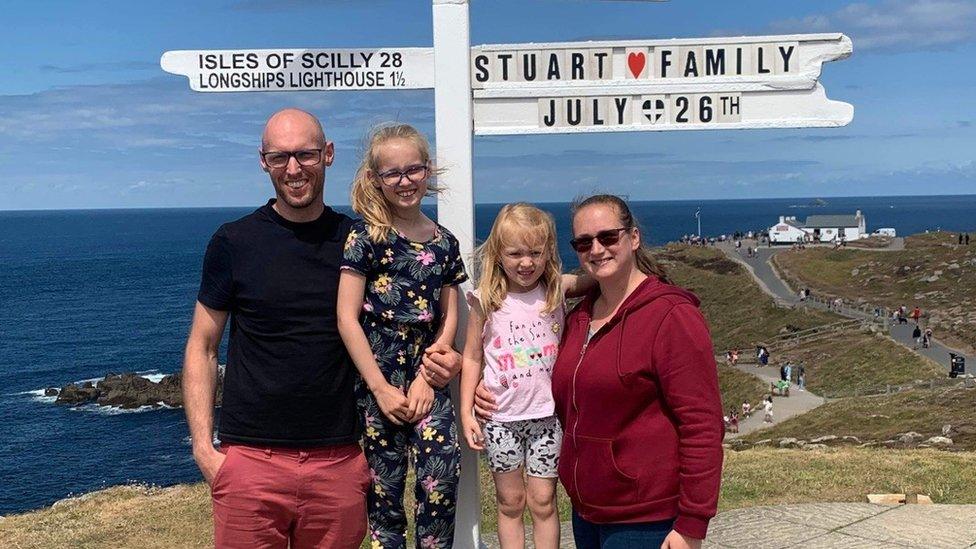Child benefit: Parents earning up to £80,000 to be able to claim
- Published
- comments
Watch: Chancellor raises child benefit income threshold
People who earn up to £60,000 a year will be able to receive child benefit in full from April.
The benefit will not be taken away entirely until an individual earns £80,000, under changes in Wednesday's Budget.
The government says the changes will help more than half a million families.
But the system has been criticised for being unfair to households with one high-earning parent.
Under child benefit, parents receive £24 a week for one child and £15.90 for each additional child. Those amounts are due to rise to £25.60 and £16.95 a week in April.
Under the current system, if one partner earns more than £50,000, child benefit starts being gradually withdrawn, such that if they earn £60,000, they do not receive any child benefit at all.
This means two parents earning £50,000 a year each would receive child benefit in full - but a household with one working parent or a single-income household earning more than £50,000 would see the benefit cut.
This threshold figure had not changed since 2013, despite childcare costs and the cost of living soaring over the last few years.
However, the chancellor has now raised the lower threshold, and said that the top of the taper at which the benefit is withdrawn completely will go up to £80,000.

Read more on Budget

The government estimates that, in total, almost half a million families with children will save an average of £1,260 next year because of the higher taper and threshold.
The chancellor also said that 170,000 families would be taken out of paying the tax entirely.
In his speech on Wednesday, the chancellor described the benefit as a "lifeline" that helped parents with many additional costs. But he acknowledged that the existing system could be "confusing and unfair" because of how single parents are affected.
So he announced that by April 2026, the plan is to move it to a system of household income, not that of individuals, following a consultation.
However, Mr Hunt cautioned that this would not be a "quick fix".
Dad-of-two David Stuart, from Whitburn, West Lothian, welcomed the changes announced to child benefit.

David Stuart welcomed the changes announced to child benefit
"I'm glad they not just raised the threshold, which would have just kicked the can down the road, but it's absolutely the right thing to move towards it being household-assessed," he said.
"Obviously it will take time but I understand that."
David earns £70,000 and his wife earns £10,000. He said the changes announced in the Budget mean "we could claim again and then potentially keep up to 50% of the benefit for the next couple of years, which seems positive", referring to the fact households like his will need to opt in again to receive the payments.
"But the main thing is it's fairer," he said.
For those considering opting in to child benefit payments again like David, you can fill in an online form, external or contact the Child Benefit Office.
If you are not sure whether or not you are liable to pay the tax charge, you can use the government's child benefit tax calculator, external to see how much you might have to pay.
According to the Office for Budget Responsibility, the government's independent finances watchdog, the changes announced will result in an increase in average hours worked among those already in jobs equivalent to about 10,000 more people entering the workforce full time.
Dr Mary-Ann Stephenson, director at the Women's Budget Group, said that she appreciated the increased threshold as a "first step".
"The change will be a relief to many parents, especially lone mothers, who are currently losing out on what should be a universal benefit for children," she said.
But she pointed out that the organisation was "very concerned" about a potential move to a household-based test for child benefit.
"Independent taxation and benefits are a key principle of women's economic independence," she said.
Responding to the chancellor's Budget speech, Labour leader Sir Keir Starmer said the cost of childcare was still a "huge challenge" for millions.
Related topics
- Published7 March 2024
